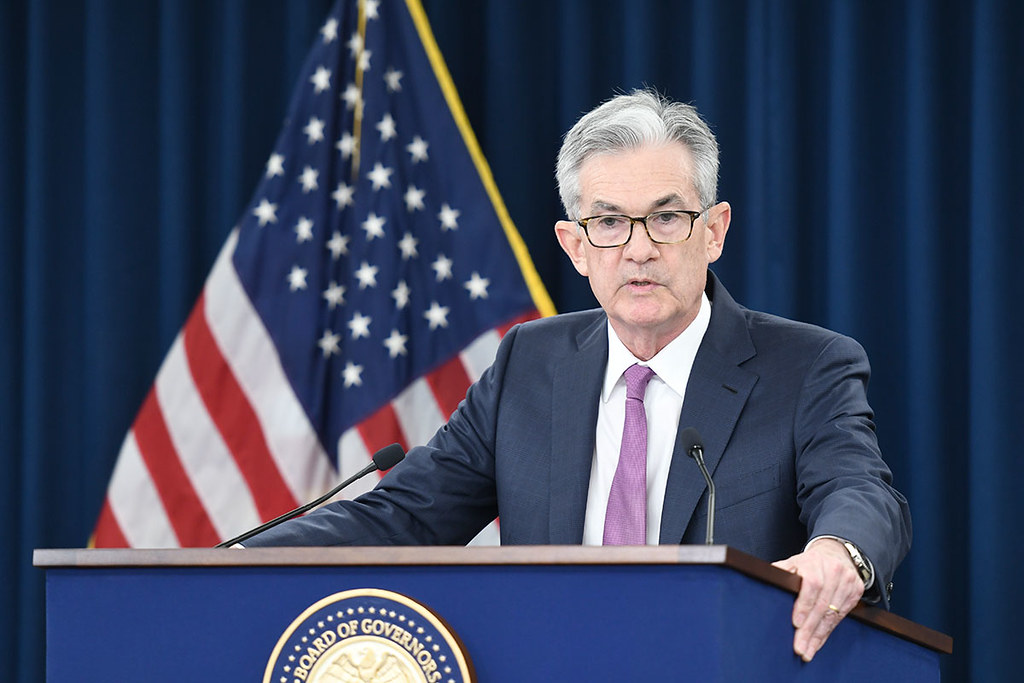

By Ann - Nov 07, 2024
Jerome Powell, chair of the Federal Reserve, is facing increased political scrutiny as the 2024 election season approaches. The potential for conflict between Powell's monetary policy decisions and the economic goals of a Trump administration may test the Fed's independence once again. Powell's choices on interest rates and inflation control could impact the economy and the relationship between the executive branch and the Federal Reserve.

flickr via Wion
LATEST
As the 2024 election season heats up, Jerome Powell, the chair of the Federal Reserve, is returning to the political limelight, especially in the area of economic policy. Powell came under heavy fire and public pressure during Donald Trump's administration. Trump insisted that the Federal Reserve lower interest rates in order to further his economic goals. Trump's constant criticisms brought attention to the conflict between the Fed's mandate and the government's economic goals, even though the Fed is an independent central bank that is intended to operate independently of political influence. Powell may once more come under investigation because of Trump's enduring influence inside the Republican Party and the possibility of his reelection.
Recent economic conditions have made Powell's job at the Federal Reserve more difficult and need careful balance. Both praise and criticism have been levelled at the Fed's several interest rate hikes since 2022 in an effort to curb inflation. Higher interest rates are thought to be required to slow down price increases, but they also have an effect on consumer spending, property markets, and employment growth. Powell's choices may come under political criticism if they seem to be at odds with Trump's policy, which places a strong emphasis on economic expansion and low interest rates. Powell's Fed may come under further pressure to implement more growth-oriented policies if Trump is reelected.
Since inflation is still a major concern, Powell's choices will probably have a significant impact on the state of the economy and put his independence to the test once more. The friction that existed during Trump's first term may resurface due to the possible conflict between Powell's monetary policy philosophy and the economic goals of a Trump government. Powell's mandate places equal emphasis on inflation control and maximum employment, although Trump has frequently seen the Fed as a tool to boost growth. Powell may find himself in a difficult situation if he is pressured to give priority to one of these two mandates over the other during politically hot times, especially given the need to maintain economic stability.
In the end, Powell's role as Fed Chair may become a major topic of discussion during the next presidential debates, with his economic policies being closely examined and possibly politicized. The Fed's future independence may be significantly impacted by how he handles this pressure. Powell's choices in the upcoming months will not only influence the economy but also have the potential to reshape the relationship between the executive branch and the Federal Reserve, given the current state of the economy. One thing is certain: Powell is once again on the hot seat. It remains to be seen if he can resist political pressure while guiding the economy toward stability.